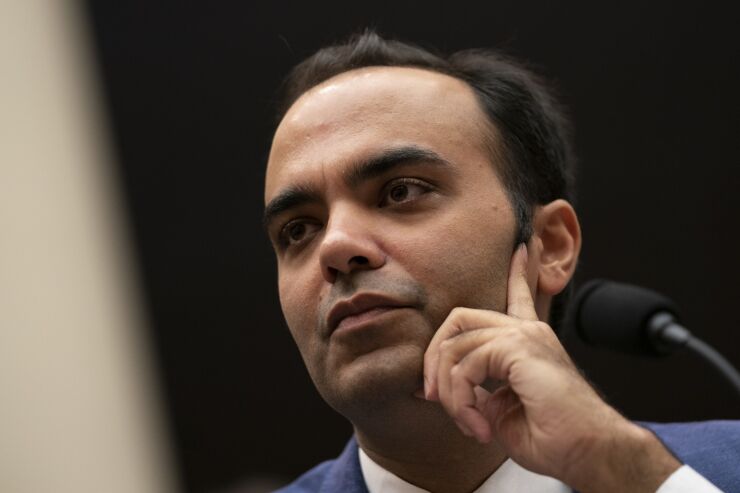In a recent
This follows

Companies in the accounts receivable management industry believe that consumers and those providing services in the financial services marketplace deserve a seat at the table. Congress enacted various laws outlining how federal agencies, even those independent from the congressional appropriations process, must act when engaging in policymaking. Yet the CFPB is blatantly ignoring those mandates.
Unresearched advisory opinions and interpretive rules that lack data-driven cost-benefit analysis skirt the required processes, and consumers will be harmed by the blind spots that come with an agency taking this approach.
On top of that, the CFPB's focus on medical debt credit reporting this year without input from stakeholders in the healthcare industry will also ultimately harm patients by reducing access to care when providers take steps to mitigate their losses. It will also enrich health insurance companies by allowing them to legitimately deny more claims — all because the CFPB wouldn't hold discussions with industry stakeholders.
The CFPB's refusal to go through a transparent process that allows industry stakeholders to be at the table providing responses and data for proposals is causing significant damage to consumers from unintended consequences. This could have been avoided if the bureau trusted community input.
For example, the CFPB released an advisory opinion in June taking aim at debt collectors' use of payment transaction fees. The only outreach the CFPB engaged in before this sweeping action was taken was including a single line mentioning the debt collection industry in a vague request for information about so-called junk fees.
As a result of the uninformed sweeping actions the CFPB took, industry participants will be forced to turn to more expensive alternatives and to limit consumer options for making payments. Creditors will likely increase the cost of credit and services because of the CFPB's actions.
The bureau did not consider or analyze any of these factors, and there was no thought given to how small businesses may be affected by its actions.
Processing fees are necessary for certain forms of payment, many of which consumers prefer to use for convenience, much like the decision to pay a fee to take an Uber, rather than drive yourself. The CFPB made no attempt to engage consumers in a study to learn more about their preferences.
For example, one collection agency reported it incurred $28,500 in credit card processing fees in June 2022. It charges a consumer a $3 fee to process a transaction on its payment portal or over the phone in states that allow or do not have specific regulations of fees. A payment option that does not include fees is offered on every call with a consumer. The agency recovered only $18,100 in fees from consumers on credit card payments. The average monthly charge for consumers on a credit card-based payment plan was $65, with plans lasting an average 20 months.
Out of the 3,049 credit card payment plans set up in June 2022, the agency heard from nine consumers with complaints about the fee, or three-tenths of 1%. Of those consumers who reported a complaint, three mailed in their payment later.
Consumers had choices, but this was what worked best for them. If federal agencies are going to start making decisions for consumers without engaging in any analysis of how it will impact them and financial services providers, what is next? Will we no longer have the option to do our shopping on Instacart to save time or order a pizza from Grubhub rather than make one from scratch?
The CFPB's leaders think longstanding rules about how federal regulations are developed do not apply to them. They think they know better than the industry and can make better choices for consumers then consumers can make for themselves. Congress has rejected this approach and has very clearly enacted laws to stop rogue agencies from acting first and asking questions later, or not at all.
The lack of transparency at the CFPB is unprecedented and unabashed. It released a public rulemaking agenda only to introduce an advance notice of proposed rulemaking for credit card late fees that was not on the agenda the same week.
What is next on the CFPB's secret agenda and what plans is it cooking up in Washington, with no input from consumers across the country?






